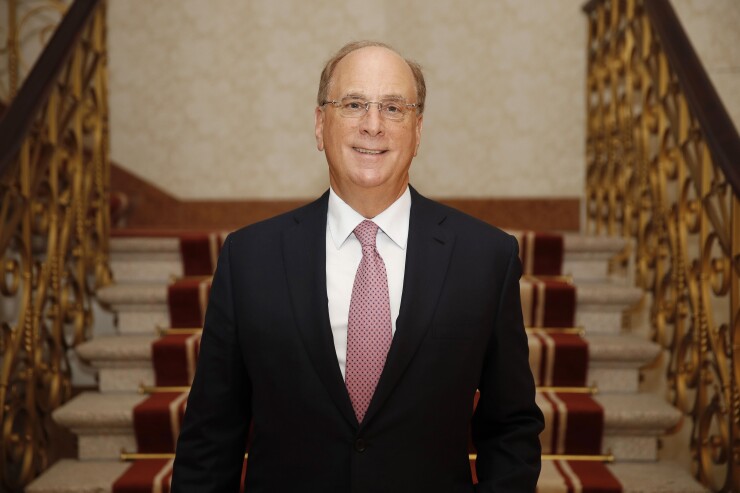BlackRock, the world’s biggest fund manager, said Tuesday that it plans to put sustainability at the center of its investment strategy and it will push companies to improve their climate risk disclosures.
The New York-based global investment manager has been involved in initiatives such as the Sustainability Accounting Standards Board and the Task Force on Climate-related Financial Disclosures (TCFD) for several years, but it announced a more focused emphasis on climate risk in an
“While no framework is perfect, BlackRock believes that the Sustainability Accounting Standards Board (SASB) provides a clear set of standards for reporting sustainability information across a wide range of issues, from labor practices to data privacy to business ethics,” he wrote. “For evaluating and reporting climate-related risks, as well as the related governance issues that are essential to managing them, the TCFD provides a valuable framework. We recognize that reporting to these standards requires significant time, analysis and effort. BlackRock itself is not yet where we want to be, and we are continuously working to improve our own reporting. Our SASB-aligned disclosure is available on our website, and we will be releasing a TCFD-aligned disclosure by the end of 2020.”

He noted that BlackRock has been engaging with companies for several years on their progress towards TCFD- and SASB-aligned reporting, but now BlackRock is asking for more rigorous disclosures. “This year, we are asking the companies that we invest in on behalf of our clients to: (1) publish a disclosure in line with industry-specific SASB guidelines by year-end, if you have not already done so, or disclose a similar set of data in a way that is relevant to your particular business; and (2) disclose climate-related risks in line with the TCFD’s recommendations, if you have not already done so,” said Fink. “This should include your plan for operating under a scenario where the Paris Agreement’s goal of limiting global warming to less than two degrees is fully realized, as expressed by the TCFD guidelines.”
At the same time, BlackRock is pulling back from investments in thermal coal production and making it easier for investors to find environmentally friendly exchange-traded funds and screen for fossil fuels in the ETFs where they invest. BlackRock’s move could prove to be influential among companies since it operates some of the most widely held index funds on the market.
Investment money has been pouring into environmental, social and governance funds operated by BlackRock and other investment managers as evidence mounts of a global climate crisis, spurring calls for a more robust response. However, the Securities and Exchange Commission has recently begun questioning the validity of ESG funds and sending examination letters probing whether firms are living up to their claims and delivering value to those investors who are less concerned about climate risk.





